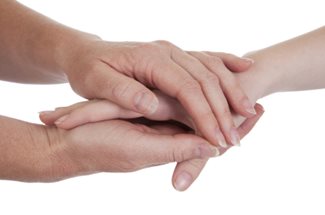Personalized Care and Screenings
When an abnormality is found there are so many questions. 
Do I need a biopsy? Who do I see? When can I get an appointment? How long will it take to get results? At the Breast and Bone Health Department, we have a Nurse Navigator and specially trained mammography technologists to guide you through each step. They’ll collaborate with the radiologist, answering your questions and obtaining all the necessary appointments before you leave the center. Coordinating your care shortens the amount of time you spend waiting for results.
High Risk Breast Program
.jpg.aspx?width=200&height=152) All women are at risk for developing breast cancer, but some women have certain risk factors that may increase the likelihood of developing cancer. If you think you may have an increased risk talk to your primary care provider. An evaluation in the
All women are at risk for developing breast cancer, but some women have certain risk factors that may increase the likelihood of developing cancer. If you think you may have an increased risk talk to your primary care provider. An evaluation in the
High Risk Breast Health Program may be right for you.
To learn more about risk factors for breast cancer visit the links provided below. For risk assessment and whether additional testing may be right for you, call The Center for Breast Health at (603) 580-6867.
Genetic Testing
This test is performed when there is a reasonable suspicion a gene mutation may be present. The good news is most women do not have the BRCA1 or BRCA2 gene mutation. Not all breast cancer is caused by genetic abnormalities. However, some women are at greater risk of having a BRCA mutation than others. The U.S. Preventative Services Task Force and the National Cancer Institute recommend women with any of the below history consider genetic testing. Your doctor can help determine if genetic testing is right for you.
- 2 first-degree relatives (mother, sisters, daughters) with breast cancer, one of whom was diagnosed when they were younger than 50
- 3 or more first- or second-degree relatives (includes grandmothers, aunts) diagnosed with breast cancer
- Both breast and ovarian cancer among first- and second-degree relatives
- A first-degree relative diagnosed with cancer in both breasts
- 2 or more first- or second-degree relatives diagnosed with ovarian cancer
- A male relative with breast cancer
Women of Ashkenazi (Eastern European) Jewish heritage should be referred for genetic evaluation if they have:
- A first-degree relative with breast or ovarian cancer
- 2 second-degree relatives on the same side of the family with breast or ovarian cancer
Related Health Information
Health Links
Network of Caring
Other Services Provided by Our Affiliates